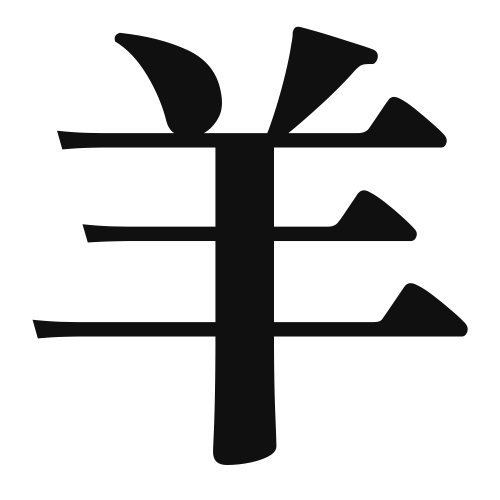1. Overview of Meaning
The kanji “羊” (pronounced “yō” in Japanese) means “sheep.” It represents the animal known for its wool and is often associated with gentleness and docility.
2. Formation and Radical
Formation of the Kanji: The kanji “羊” is a pictogram, originally depicting the shape of a sheep. It belongs to the category of ideograms, as it conveys the concept of the animal itself.
Radical: The radical for “羊” is also “羊,” which is used in other kanji related to sheep or similar animals.
3. Examples of Usage
Common Words and Phrases:
- 羊肉 (yōniku) – mutton or lamb
- 羊毛 (yōmō) – wool
Example Sentences in Daily Conversation:
- 「私は羊肉が好きです。」(Watashi wa yōniku ga suki desu.) – “I like mutton.”
- 「羊はとてもおとなしい動物です。」(Hitsuji wa totemo otonashii dōbutsu desu.) – “Sheep are very gentle animals.”
4. Synonyms and Antonyms
Similar Kanji:
- 「山」(yama) – mountain; while both represent aspects of nature, “山” refers to a landform, whereas “羊” refers to an animal.
Antonyms:
- 「狼」(ōkami) – wolf; this kanji represents a predator, contrasting with the gentle nature of sheep.
5. Cultural and Historical Background
Relation to Japanese Culture: In Japan, sheep are not as common as in some other cultures, but they are still present in folklore and art. The kanji “羊” is often associated with the zodiac sign of the sheep.
Proverbs and Idioms: One common saying is “羊の皮をかぶった狼” (Hitsuji no kawa o kabutta ōkami), which translates to “a wolf in sheep’s clothing,” referring to someone who hides their true intentions.
